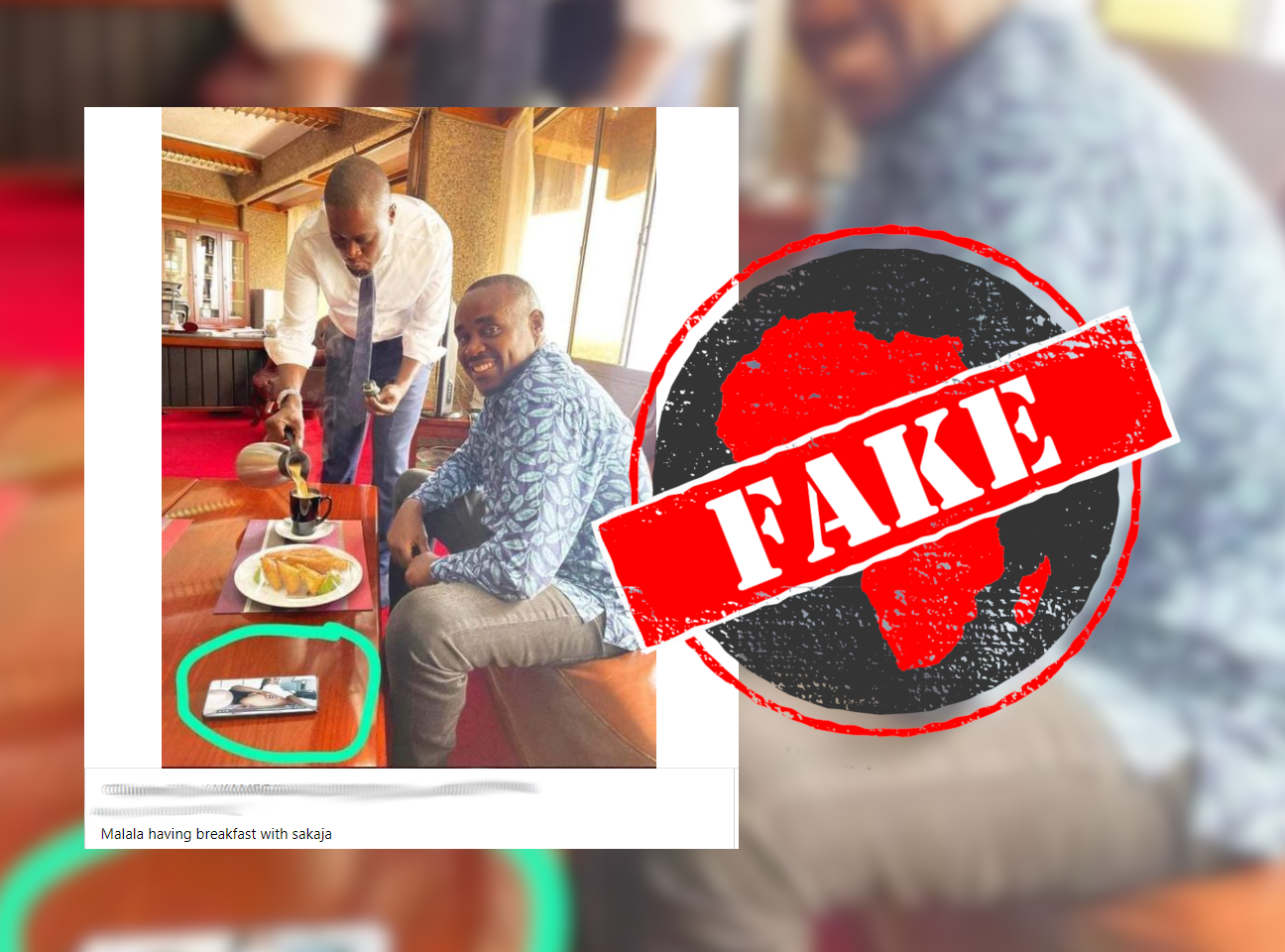A photo published on Facebook in January 2022 shows Kenyan senators Johnson Sakaja and Cleophas Malala.
Sakaja is pouring from a thermos flask into a cup on a low table, and Malala smiles into the camera. But it’s the content visible on a cellphone in the foreground that’s catching social media users’ attention.
In the photo, also shared here and here, the phone has been circled and when looked at closely, appears to display a pornographic scene. One commenter on the photo calls the senator a “porno addict”.
Sakaja represents Nairobi City county in the Kenyan senate, while Malala represents Kakamega county in the western part of the country.
But is the photo authentic? We checked.

Altered image, original shows message-thread
Sakaja is active on Facebook and Twitter, often updating daily on his whereabouts.
While we could not find this photo on his Twitter account, we looked through his photo gallery on Facebook and found the same photo, posted on 9 December 2021.
However, the phone placed on the table doesn’t show a photo, pornographic or otherwise. It shows what looks like a thread of text messages or emails.
The photo circulating on social media has been digitally altered.
As Kenya gears for elections on 9 August 2022, beware of manipulated photos attempting to smear politicians. Read our guide on how to verify images on your smartphone for tips.
Republish our content for free
For publishers: what to do if your post is rated false
A fact-checker has rated your Facebook or Instagram post as “false”, “altered”, “partly false” or “missing context”. This could have serious consequences. What do you do?
Click on our guide for the steps you should follow.
Publishers guideAfrica Check teams up with Facebook
Africa Check is a partner in Meta's third-party fact-checking programme to help stop the spread of false information on social media.
The content we rate as “false” will be downgraded on Facebook and Instagram. This means fewer people will see it.
You can also help identify false information on Facebook. This guide explains how.


Add new comment